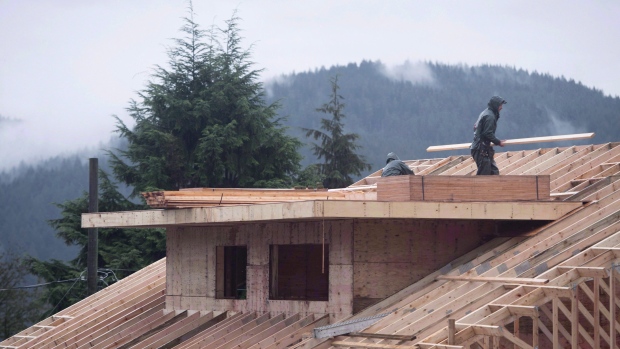Fancy Apartment Rentals for Paris Olympics See Poor Demand and Price Cuts
Locals who’d hoped to turn a big profit by renting out their posh apartments are now slashing prices by 30%-60%.
Latest Videos
The information you requested is not available at this time, please check back again soon.
Locals who’d hoped to turn a big profit by renting out their posh apartments are now slashing prices by 30%-60%.
The kingdom must overcome a conservative image and concern about human rights. Visit the desert oasis town of AlUla to understand the challenge.

Jury selection was completed Friday for Donald Trump’s first criminal trial, setting the stage for opening arguments Monday in a New York case accusing the former president of falsifying business records to conceal a sex scandal before the 2016 election.

Higher-than-expected interest rates amid persistent inflation are perceived as the biggest threat to financial stability among market participants and observers, according to the Federal Reserve.

Fifth Third Bancorp jumped the most in four months, leading bank stocks higher, with Chief Executive Officer Tim Spence predicting that income from lending has bottomed out.
Dec 10, 2018
The Canadian Press

TORONTO -- The annual pace of Canadian housing starts picked up in November, beating analyst expectations, and signal that the country's real estate market continues to show signs of stability.
Canada Mortgage and Housing Corp. says the seasonally adjusted annual rate of housing starts in Canada was 215,941 units in November, up from 206,753 in October.
Economists had expected an annual rate of 198,000, according to Thomson Reuters Eikon.
The increase in the overall annual rate of housing starts came as the pace of urban starts increased by 2.2 per cent in November to 202,054 units.
The annual rate of urban multiple-unit projects such as condominiums, apartments and townhouses grew 3.9 per cent to 151,596 units. This made up for a decline in single-detached urban starts, which fell 2.3 per cent to 50,458.
"While single-detached starts continued to trend lower in November, this was more than offset by a gain in the trend of multi-unit starts following several months of weakness," Bob Dugan, CMHC's chief economist, said in a statement.
Rural starts were estimated at a seasonally adjusted annual rate of 13,887 units, said the housing agency.
TD Economics says the figures weren't completely unexpected due to the number of new residential permits issued in the third quarter.
Statistics Canada also reported on Monday that the value of residential building permits was $5.2 billion in October, up 4.2 per cent from September. Both multi-family and single-detached permits showed gains.
The agency said the increases in Ontario and B.C., helped offset a decline in Quebec, and was largely driven by permits for apartment and condominium housing.
"On a trend basis, housing starts appear to have troughed, with some upward momentum of late," said TD senior economist Fotios Raptis in an analyst note.
"Given the upward trend in building permits through October, there's a good chance that housing starts will continue to see some further upside in the months ahead for both single and multi-family units"
RBC Economics senior economist Nathan Janzen anticipates housing starts to pull back in the new year.
"Looking beyond near-term swings in the data, we continue to think interest rates will continue to rise gradually going forward -- and that will weigh particularly heavily on interest-rate sensitive purchases like houses," Janzen said in a note.
"Higher rates plus regulatory measures have already slowed the home resale market significantly. We expect those trends will ultimately result in slower home building activity next year as well."